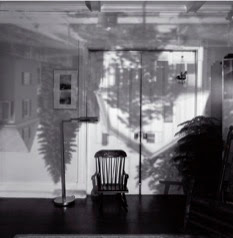> Don’t you kind of feel sorry for John Updike? I mean, he writes a story and how many places can he publish it? I’ve got hundreds, maybe thousands of places where I can send one of my stories and I’ll be lucky if it lands anywhere, and I’ll be especially lucky if they pay me for it. But poor John. He’s got The New Yorker, maybe the summer fiction issue of The Atlantic Monthly, Harper’s. And that’s about it. So it’s a good thing that The New Yorker takes a couple of his a year, otherwise he’d be out of luck. Poor guy.
Don’t you kind of feel sorry for John Updike? I mean, he writes a story and how many places can he publish it? I’ve got hundreds, maybe thousands of places where I can send one of my stories and I’ll be lucky if it lands anywhere, and I’ll be especially lucky if they pay me for it. But poor John. He’s got The New Yorker, maybe the summer fiction issue of The Atlantic Monthly, Harper’s. And that’s about it. So it’s a good thing that The New Yorker takes a couple of his a year, otherwise he’d be out of luck. Poor guy.
This story begins with Brad, who works at home in a suburb of Boston while his wife works in the city, experiencing a power failure during a wicked storm. The power failure is described brilliantly:
“Around him, the house seemed to sigh, as all its lights and little engines, its computerized timers and indicators, simultaneously shut down. The sound of wind and rain lashing the trees outside infiltrated the silence. A beam creaked. A loose shutter banged. The drip from a plugged gutter tapped heavily, like a bully nagging for attention, on the wooden cover of a cellar-window well.”
Because he can’t get any work done, he decides to run errands, but finds that the small downtown is darkened, too, but surprisingly busy with pedestrians. On the way home he runs into a female neighbor who is home alone and afraid, so he stops by her house and we begin to sense danger. And sure enough . . .
Give me a break. Knowing that Updike wrote this, you could have guessed in the first paragraph more or less what was going to happen or at least what kind of trouble the guy was going to get into. I’m telling you right now this will not be on my top-ten list at the end of the year.

>My response is probably slightly more enthusiastic than yours. Its strength is in the brilliantly vivid scenic descriptions (to which you alluded). However, the story seems incomplete and ended abruptly.
Paul Epstein
>No question, the language is terrific. But it’s the subject matter that’s stale and, as you say, the ending is abrupt and disappointing.
>Should that be “Outage”? or “Outrage”? I’m more than a little sick of seeing his name in the TOC, myself.
>i actually like to think this story is actually about how john updike can’t write the stories he used to, because the world has changed so much, and with the world, it’s reader and their tastes. the story ends abruptly because updike (and brad) have no idea how to continue. i don’t know. i think maybe we’re coming down a bit too hard on the old fart.
>Did you see this, in the NY Times Book Review?
Updike’s Mode (An Ode)
Published: January 6, 2008
To the Editor:
In re your review of John Updike’s “Due Considerations: Essays and Criticism” (Nov. 4):
There aren’t too many others like
our John, the writer, Up, yes, dike.
His brain, like his golf, is well above par,
and his work is, well, it’s wunderbar.
But how I wish, to my chagrin,
that he could, just for once, begin
a sentence and, without a bend,
continue straight until the end.
When I read his books I find
it’s like a Christmas of the mind,
and he is Santa, bringing pauses,
father of dependent clauses.
J. MUDCAT MILLER
Cutchogue, N.Y.
>It’s the dependent clauses where this story goes wrong…
>…not